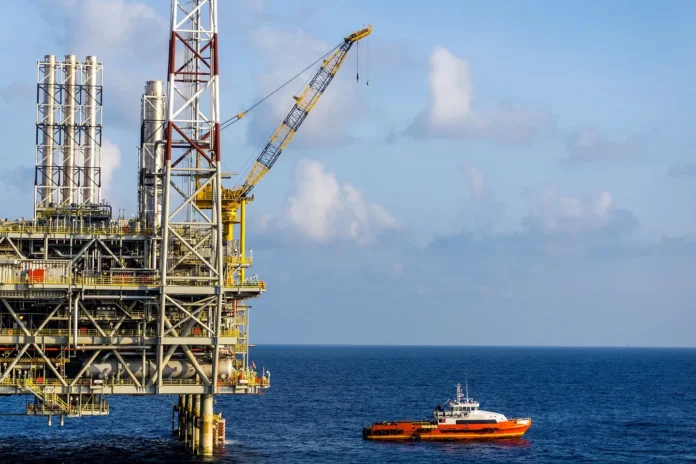An enormous 7.4 magnitude earthquake struck the remote Alaskan Island of Kodiak early this morning, sending shockwaves through the region and triggering multiple tsunami warnings. The quake, which struck at approximately 4:20 AM local time, was felt as far as Anchorage, roughly 450 miles northeast of the epicenter.
Table of Contents
Tsunami Warnings Issued Across the Region
In the wake of the powerful earthquake, authorities swiftly issued tsunami warnings for coastal communities along the Gulf of Alaska and the Aleutian Islands. Residents in these areas were urged to seek higher ground immediately to avoid the potential threat of large waves that could be generated by the quake.
The Pacific Tsunami Warning Center in Hawaii was activated to monitor the situation and provide real-time updates. Residents and tourists in coastal regions were advised to stay tuned to local news and official sources for further instructions and safety information.
Impact on Kodiak Island
Kodiak Island, one of the largest in the United States, experienced significant shaking during the earthquake. The extent of the damage to infrastructure and buildings on the island is yet to be fully assessed. Emergency response teams have been mobilized, but access to the island remains a challenge due to its remote location.
The quake has also triggered landslides and aftershocks, adding to the complexity of the situation. Authorities are closely monitoring the aftermath to determine the full scope of the disaster and assess the need for further assistance.
Communication and Transportation Disruptions
The earthquake and subsequent aftershocks have caused communication and transportation disruptions throughout the region. Power outages have been reported in several areas, making it difficult for residents to access critical information and emergency services. The impact on telecommunication towers and infrastructure has also hindered communication efforts.
Additionally, transportation routes have been affected by landslides and potential damage to roads and bridges. This has slowed down emergency response teams’ ability to reach affected communities and provide aid swiftly.
Past Earthquake History in Alaska
Alaska, situated along the Pacific Ring of Fire, is no stranger to earthquakes. The region experiences thousands of seismic events each year, ranging from minor tremors to powerful quakes. The last significant earthquake to strike Alaska was the 1964 Great Alaska Earthquake, a 9.2 magnitude event that remains one of the most powerful earthquakes ever recorded. The earthquake and ensuing tsunamis caused widespread devastation, resulting in over 130 fatalities and substantial damage to infrastructure.
Preparedness and Emergency Response
The Alaskan authorities’ response to earthquakes has been shaped by the lessons learned from past disasters. Emergency preparedness plans and drills are regularly conducted to ensure that communities are better equipped to handle such natural disasters.
The Pacific Tsunami Warning Center plays a vital role in providing early warnings, allowing people in coastal areas to evacuate to safer grounds promptly. Local emergency services and response teams work in coordination with federal agencies to ensure a swift and efficient response during times of crisis.
Climate Change and Earthquake Risks
In recent years, scientists have raised concerns about the potential connection between climate change and increased seismic activity. Some researchers believe that the melting of ice sheets and glaciers due to rising temperatures could trigger shifts in tectonic plates, leading to an uptick in earthquakes in certain regions, including Alaska.
While the exact correlation is still a topic of ongoing research and debate, the possibility has prompted authorities to reevaluate their earthquake preparedness plans and study the potential long-term risks posed by climate change.
Coordinated Regional Response
The earthquake in Alaska has also prompted a coordinated regional response. The neighboring states of Washington, Oregon, and California have been closely monitoring the situation, given their proximity to the Pacific Ring of Fire and their vulnerability to seismic events. While the impact of the earthquake in Alaska on these states is still being assessed, authorities have activated their own emergency response systems to prepare for any potential repercussions.
Additionally, international agencies and neighboring countries with Pacific coastlines are closely following the developments in Alaska. The potential for tsunamis and the far-reaching effects of such a powerful earthquake make it imperative for global cooperation and information sharing during times of crisis.
Assessing Environmental and Infrastructural Damage
As the initial shock of the earthquake subsides, experts are beginning to assess the environmental and infrastructural damage caused by the event. The region’s unique ecosystems, including its abundant marine life, might face disruptions due to underwater disturbances caused by the earthquake. Fisheries and wildlife authorities will be closely monitoring these areas to understand the extent of any environmental impacts and develop strategies for conservation and recovery.
Infrastructure, including critical lifelines such as hospitals, schools, and power stations, will be assessed for damage. Engineers and geologists will evaluate the structural integrity of buildings and roads to determine the necessary repairs and reinforcements. These assessments will provide valuable insights into enhancing the region’s resilience to future seismic events.
Support and Aid Efforts
The aftermath of such a massive earthquake requires a collaborative effort from various agencies, organizations, and governments. The Federal Emergency Management Agency (FEMA) has been coordinating with Alaskan authorities to deploy resources and assistance to affected communities. Supplies like food, water, medical equipment, and temporary shelters are being mobilized to provide immediate relief to those impacted.
The support from the international community has also been forthcoming, with neighboring countries offering their assistance and expertise in disaster response and recovery. Relief organizations and non-governmental entities are playing a vital role in supporting the affected population and contributing to the relief efforts.
Coping with Trauma and Mental Health Concerns
The emotional toll of a natural disaster like this cannot be overlooked. Earthquakes can cause immense anxiety, fear, and trauma, even among those who have not sustained physical injuries. The uncertainty and disruption caused by such events can leave lasting psychological scars on individuals and communities.
Counseling and mental health services are being made available to those impacted by the earthquake. Recognizing the importance of addressing mental health concerns, support centers and hotlines have been established to offer guidance, comfort, and coping strategies to those in distress.
Lessons for Future Preparedness
As the immediate response to the earthquake continues, authorities are already looking to the future. The lessons learned from this seismic event will contribute to refining and updating emergency preparedness plans for the region.
Efforts to further strengthen infrastructure, communication systems, and evacuation procedures will be evaluated to minimize the impact of future earthquakes and tsunamis. The need for public awareness campaigns on earthquake safety and preparedness will also be emphasized, encouraging residents to be proactive in safeguarding themselves and their communities.
Conclusion
The 7.4 magnitude earthquake that struck Kodiak Island, Alaska, has sent shockwaves through the region and triggered multiple tsunami warnings. As communities brace for potential impacts, emergency response teams are working tirelessly to assess the damage and provide aid to affected areas. The situation remains fluid, with ongoing aftershocks and disruptions to communication and transportation adding to the challenges faced by authorities. Nevertheless, the Alaskan community’s resilience and preparedness, honed through past experiences, are crucial factors in minimizing the disaster’s impact and ensuring the safety of its residents. As the world closely monitors the developments in Alaska, the disaster serves as a stark reminder of the ongoing risks posed by natural events and the importance of constant vigilance and preparedness for such eventualities.








